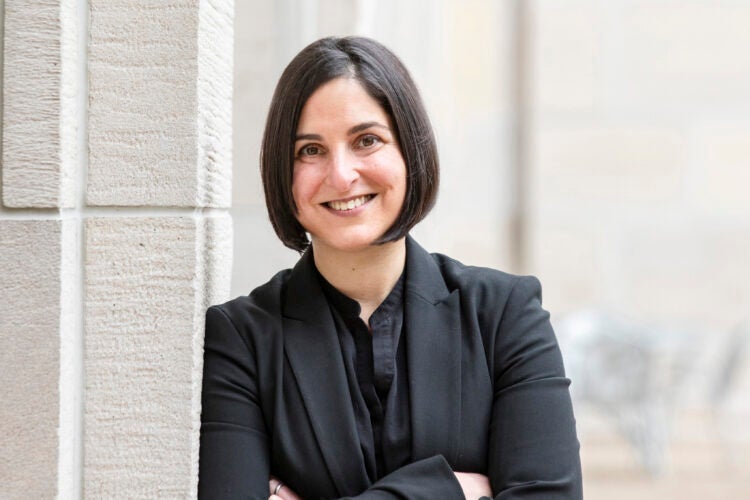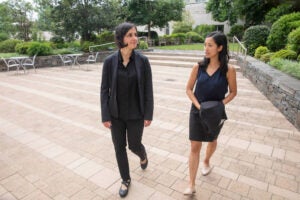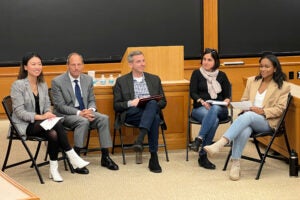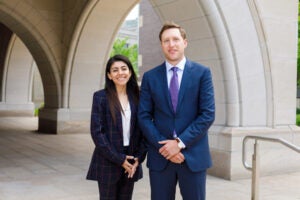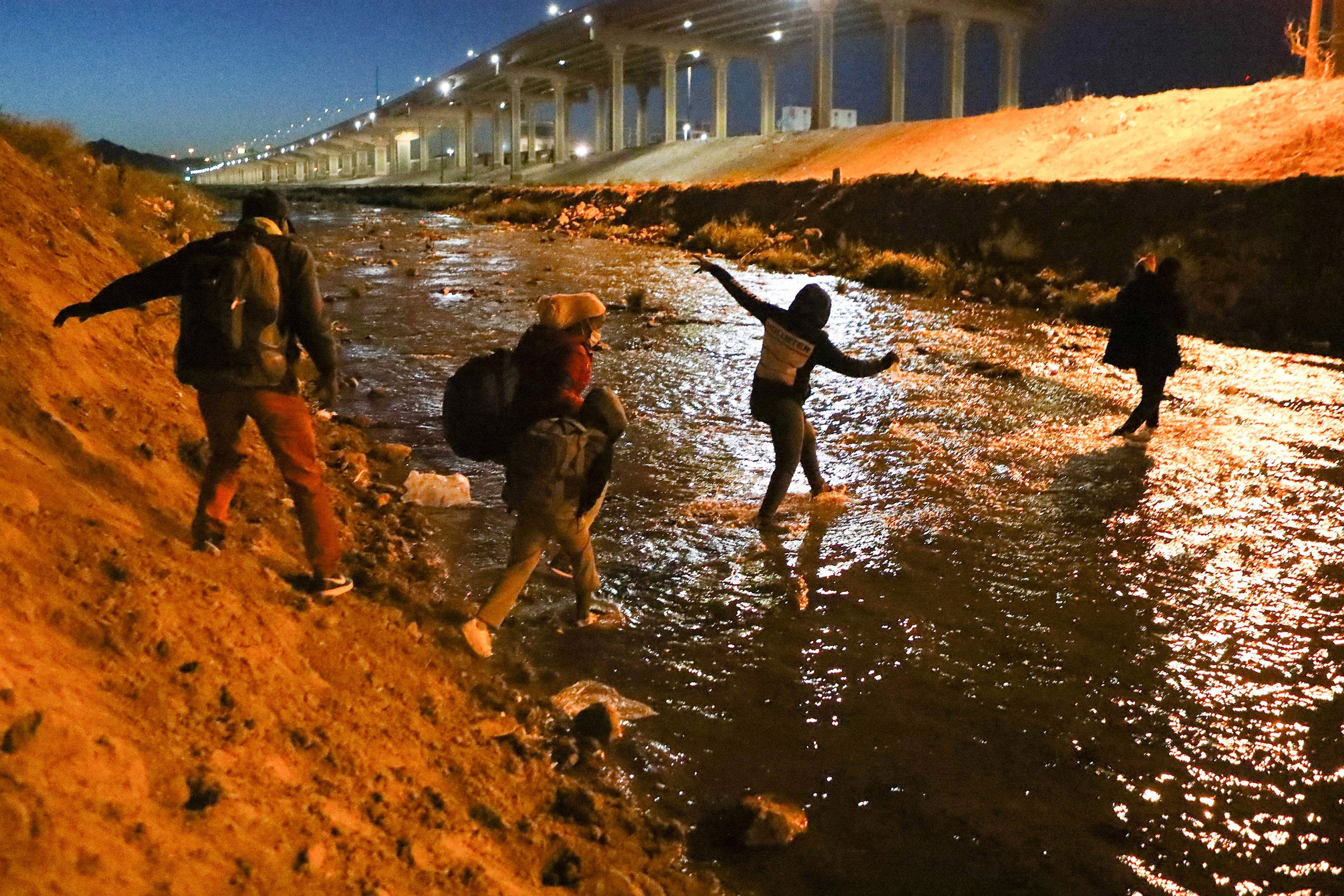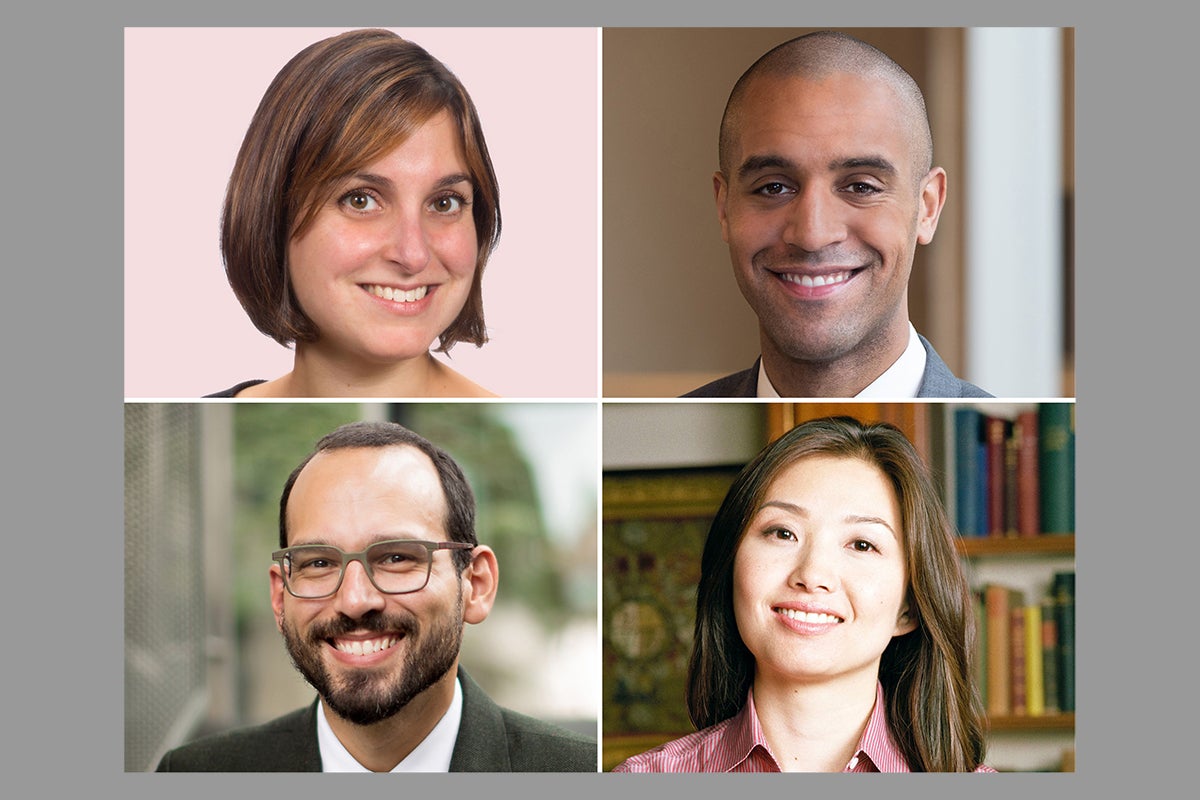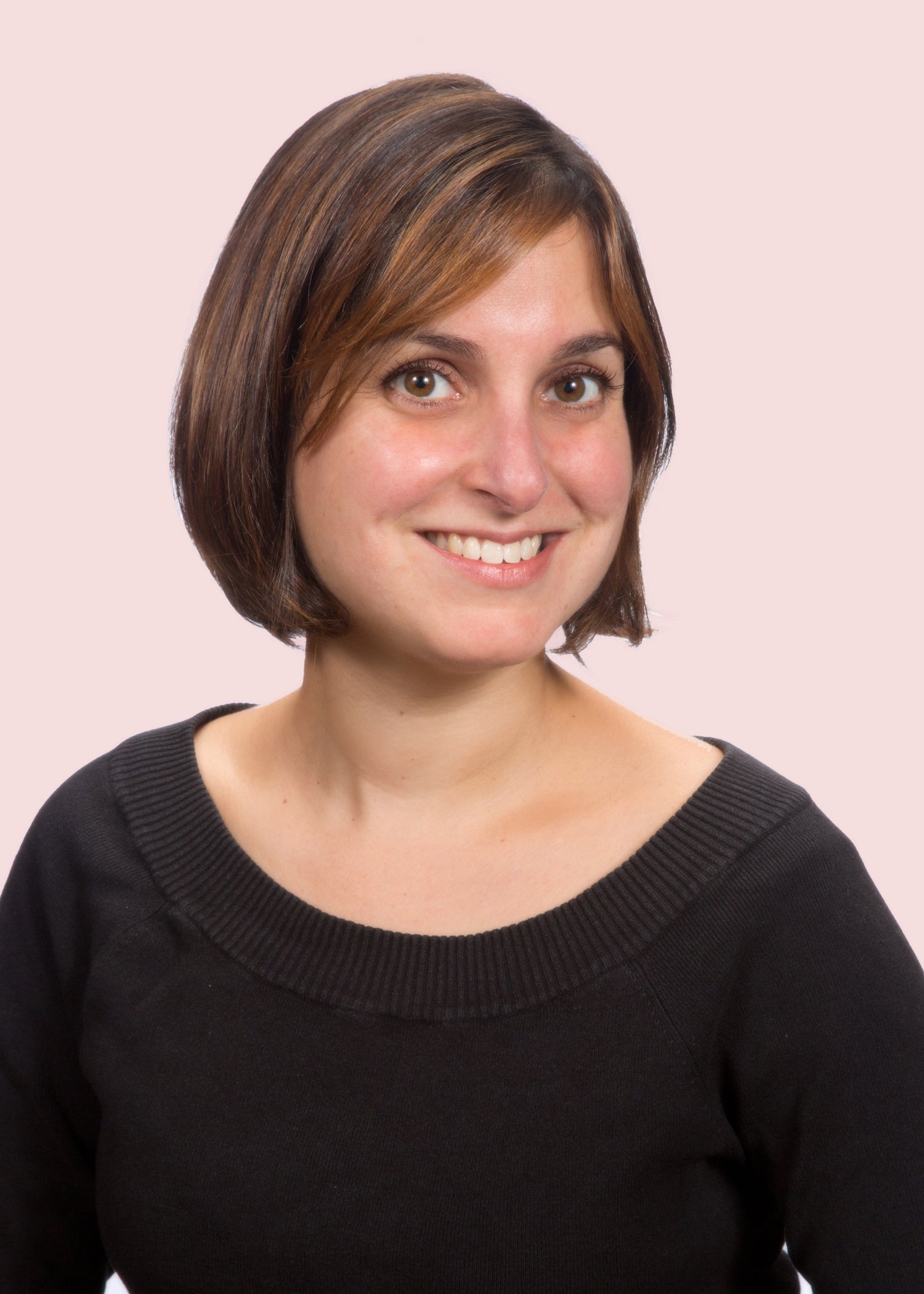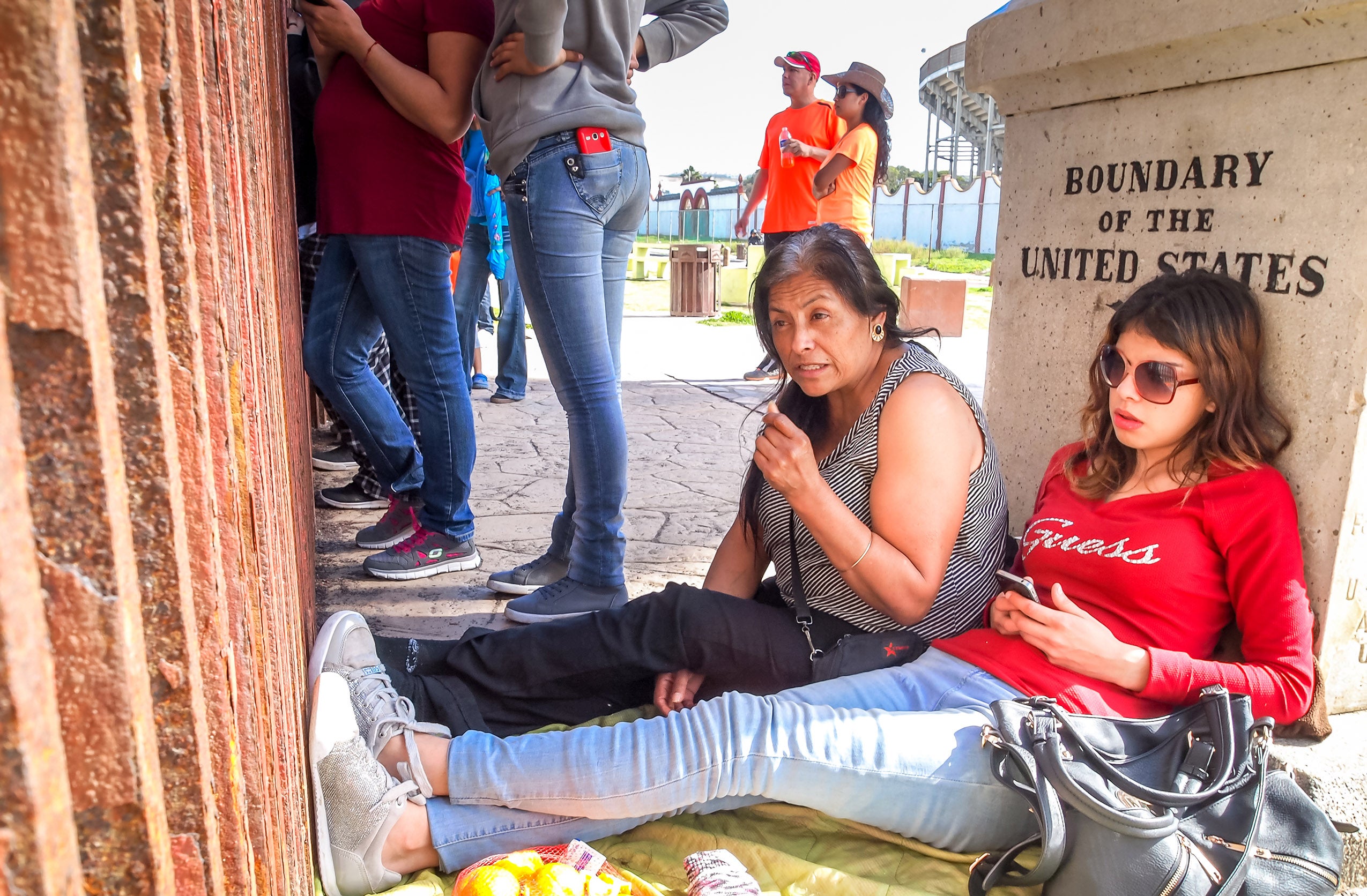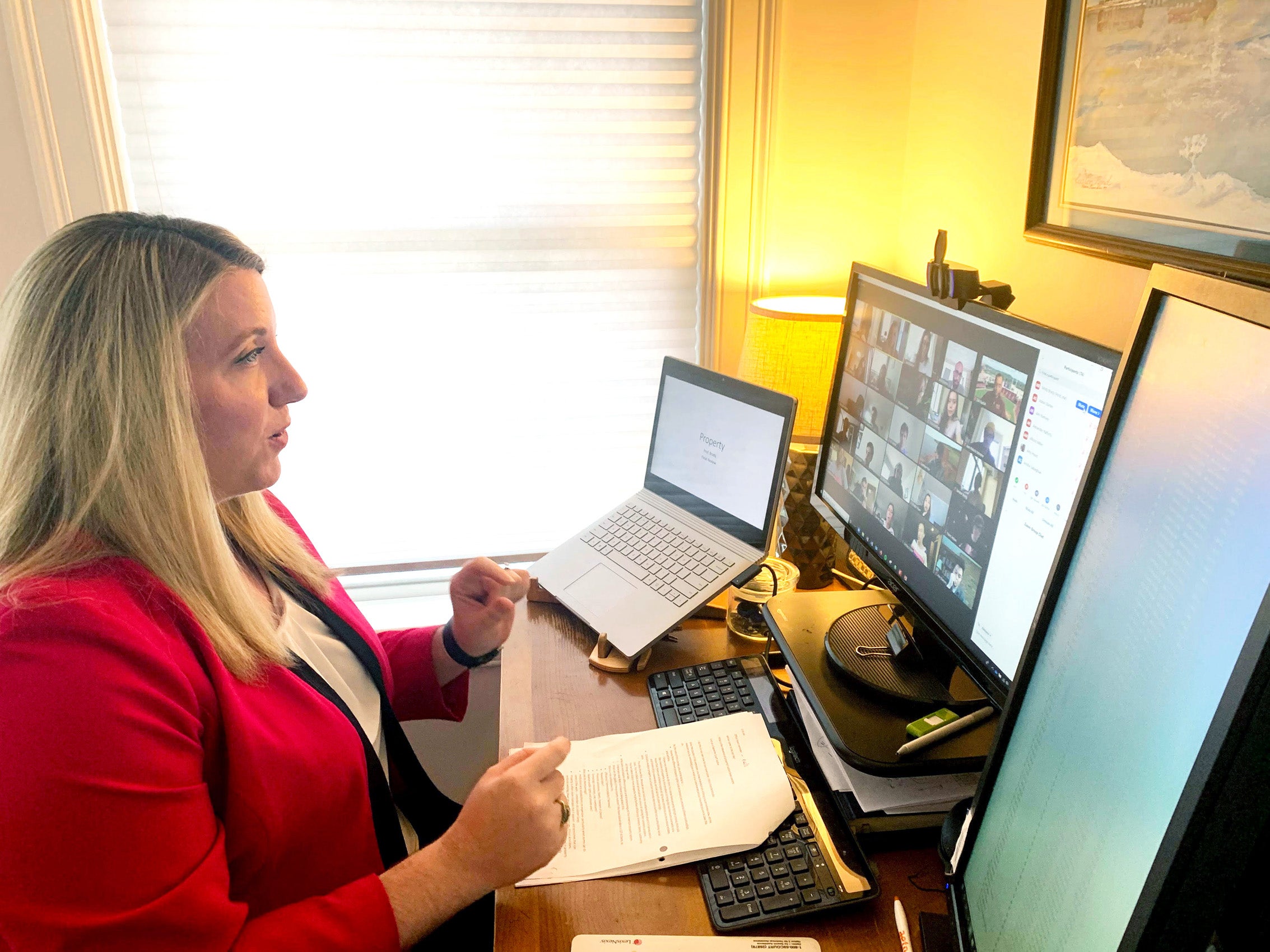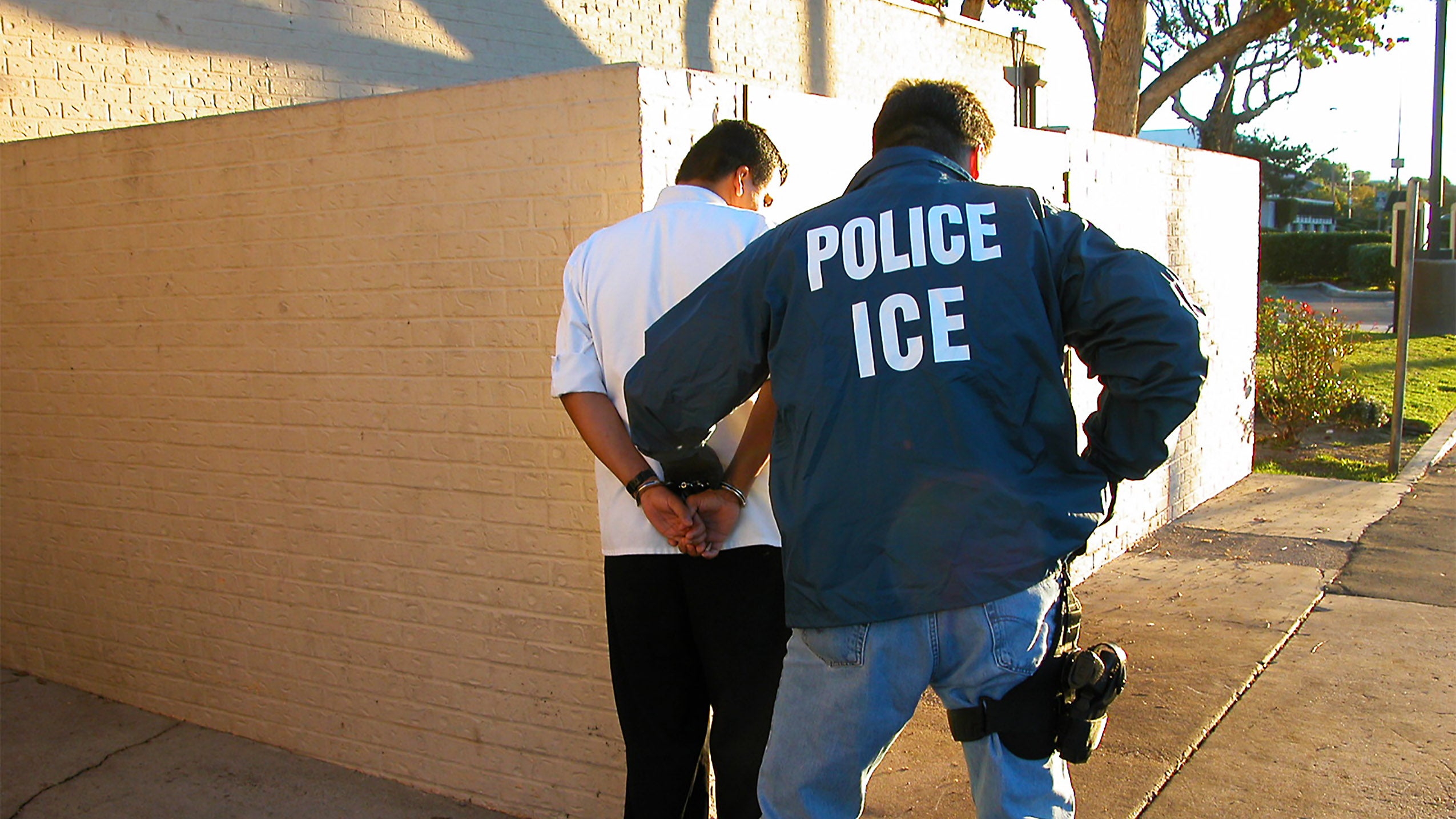People
Sabrineh Ardalan
-
The United States government has placed detained immigrants in solitary confinement more than 14,000 times in the last five years, and the average duration is…
-
ICE used solitary confinement more than 14,000 times in the past five years, report reveals
February 6, 2024
Average time in confinement surpasses the UN standard for torture, say co-authors of a new report at the Harvard Immigration and Refugee Clinical Program.
-
A Law School analysis of the Dedicated Docket in Boston says the biggest problem is lack of legal representation.
-
His American Dream
May 12, 2023
With the support of other immigrants and compassionate immigration lawyers, Ricardo Jimenez Solis ’23 is now achieving what his family hoped for when they left their home in El Salvador for the United States.
-
Philip Torrey named assistant clinical professor of law
April 14, 2023
Philip Torrey, managing attorney of the Harvard Immigration and Refugee Clinical Program, and director of the Crimmigation Clinic, was named an assistant clinical professor.
-
‘Our voices must be heard’
April 12, 2023
A conference in honor of immigration law pioneer Deborah Anker focused on emerging immigration law issues.
-
Biden and Trudeau’s immigration deal makes it easier for both countries to turn away asylum seekers
March 27, 2023
In his first state visit to Canada since taking office, President Joe Biden announced an immigration deal with Canadian Prime Minister Justin Trudeau that enables…
-
Notes and Comment, an annual event held at the Harvard Law School Library, helps students working on writing projects find faculty mentors.
-
Harvard Law School faculty members Sabrineh Ardalan, Michael Gregory, and Scott Westfahl candidly discussed their experiences with mental health, during and after law school, and shared how those have informed their work and strategies for well-being.
-
Henry Beshar and Stacey Menjivar receive 2022 Clinical Legal Education Association Awards
May 24, 2022
Henry Beshar ’22 and Stacey Menjivar ’22 are the recipients of the 2022 Clinical Legal Education Association (CLEA) Awards. The awards are presented annually to students…
-
Weighing President Biden’s first year: Immigration
January 18, 2022
Sabrineh Ardalan, of the Harvard Immigration and Refugee Clinic, praises Biden for jettisoning some Trump-era policies, but says he has also “doubled down on” on the former administration’s “draconian … border policies.”
-
Harvard Law School’s 2021 Last Lecture Series
May 5, 2021
The Last Lecture Series at Harvard Law School, sponsored annually by the 3L and LL.M. class marshals, is an HLS tradition in which selected faculty members impart insight, advice, and final words of wisdom to the graduating class.
-
Drawing on her own experiences in life and the law, Clinical Professor Sabrineh Ardalan stressed the importance of community, especially during a year of shutdown during her Last Lecture to graduating students.
-
Harvard Immigration and Refugee Clinical Program blocks another Trump administration asylum rule
January 13, 2021
In a case brought by the Harvard Immigration and Refugee Clinical Program, a California District Court last week issued a preliminary injunction blocking a Trump administration rule that would gut protections for people fleeing persecution and torture.
-
Judge blocks wide-ranging asylum limits, finding DHS chief did not have authority to issue them
January 12, 2021
Another federal judge on Friday ruled that Chad Wolf was likely unlawfully appointed to his position at the helm of the Department of Homeland Security (DHS), issuing a decision that blocked a set of broad asylum limits slated to take effect Monday. In a scathing 14-page decision, Judge James Donato of the U.S. District Court in San Francisco agreed with other federal judges who have concluded that DHS failed to follow proper legal procedures when installing Wolf as the department's acting secretary...Donato said Wolf did not have the authority to greenlight a regulation that would erect new restrictions at every stage of the U.S. asylum process, including rules that generally disqualify victims of gang violence, gender-based persecution, domestic abuse and torture staged by "rogue" government officials from U.S. refuge. Donato issued a nation-wide preliminary injunction against the policy, which advocates dubbed the "death to asylum" rule. "This is the most far-reaching of the midnight asylum regulations unveiled in the Trump administration's final days," said Sabrineh Ardalan, the director of the Harvard Immigration and Refugee Clinical program, one of the groups challenging the policy. "But try as it may, this administration cannot destroy our asylum system and rewrite our laws by executive fiat."
-
Bacow letter urges Biden to reverse Trump immigration curbs
December 16, 2020
Harvard President Larry Bacow has urged President-elect Joseph R. Biden Jr. to reverse a series of immigration restrictions imposed by the Trump administration over the past four years, arguing that the steady flow of talented immigrants to the United States — many coming to study at a college or university — historically has been a key ingredient of the nation’s innovation economy. In a letter sent Monday congratulating Biden on his election victory, Bacow wrote in support of the incoming administration’s plans to rescind the ban on travel from certain Muslim-majority countries, reinstate Deferred Action for Childhood Arrivals, otherwise known as DACA, and reissue Temporary Protected Status for people from countries experiencing war or natural disasters...Sabrineh Ardalan, who directs the Immigration and Refugee Clinic at Harvard Law School, also welcomed Bacow’s letter. “The University’s continued advocacy on behalf of people with DACA and TPS is incredibly important,” said Ardalan. “It is critical that the Biden administration fully reinstate DACA and TPS and work with Congress to create a path to permanent residency and citizenship for DACA recipients and TPS holders.”
-
Harvard Immigration and Refugee Clinical Program scores a victory for asylum seekers
November 20, 2020
In recent court victory, students from the Harvard Immigration and Refugee Clinical Program help safeguard the lives of countless asylum seekers by preventing more stringent federal immigration rules from going into effect.
